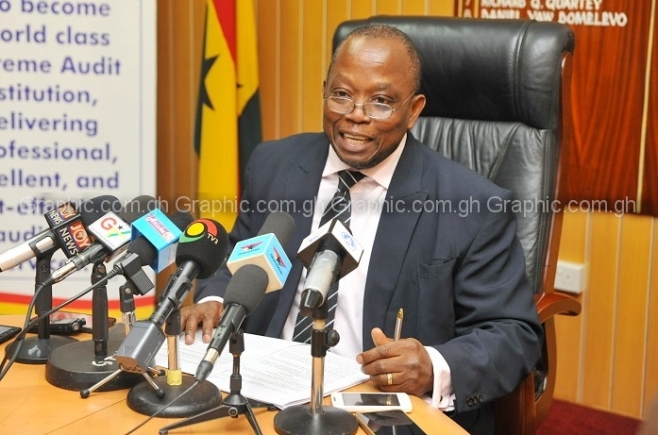
Domelevo urges removal of asset declaration from Auditor-General’s mandate
A former Auditor-General, Daniel Yaw Domelevo has called for a constitutional amendment to strip the Auditor-General’s office of its current responsibility for handling asset declaration by public officials.
He argues that the existing arrangement undermines both the credibility of asset declaration and the core auditing duties of the office.
Speaking at the Constitution Review Committee’s stakeholder engagement on anti-corruption in Accra on Monday, April 14 2025, Mr Domelevo said the current system was flawed and had little impact on tackling corruption.
He disclosed that before his appointment in 2016, public officers submitted sealed envelopes marked “asset declaration,” which no one was allowed to open or verify.
“When I assumed office, my first question was: what if a court orders the opening of a sealed declaration and finds newspaper clippings inside? How would I prove I didn’t insert them?” he said.
According to him, he introduced new protocols during his tenure, requiring declarants to present valid identification, sign each page of their declaration forms, and submit the documents unsealed. However, he expressed concern that this system may have been abandoned since his departure in 2020.
Mr Domelevo insisted that filing an asset declaration should not be a mere formality.
“Declaration to someone implies that the person must see what is being declared. Paper filings alone won’t stop corruption,” he said, calling for the declarations to be properly scrutinised and published.
He recommended that the constitutional mandate for asset declarations be moved to the Commission on Human Rights and Administrative Justice (CHRAJ) or a specialised anti-corruption agency.
“Any Auditor-General will naturally focus on auditing public accounts, because that is the core mandate.
The arrears in audits alone show how much of a distraction asset declarations have become,” he added.
Mr Domelevo also proposed several constitutional reforms. He called for a pre-office declaration requirement, rejecting Parliament’s current six-month window for public officials to declare their assets after assuming office.
He criticised the practice of declaring non-existent assets, such as unfinished projects or undeveloped land marked for future development.
He also called for the Constitution to include a clear and detailed chapter on corruption, setting out what constitutes corrupt conduct and outlining how it should be addressed.
